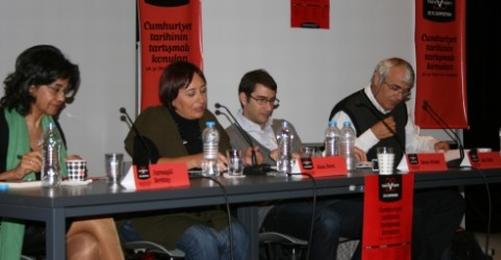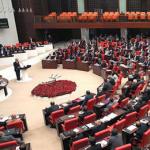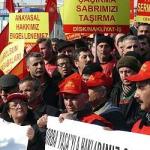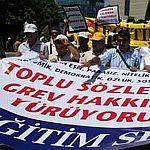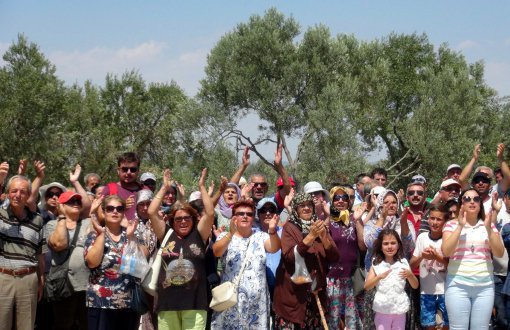A variety of topics was covered at the symposium "Controversial Topics of the Republican History" organized by the History Foundation in the thematic framework of the 20th century. Assoc. Dr. Aksu Bora from the Hacettepe University presented a paper on "Modern Femininity: From Politics to Culture"; Asst. Assoc. Dr. Sinan Birdal from the Istanbul University spoke on "The Scheme of Ontology: Politics and LGBT-phobia in Turkey". "Workers as the Winners and Losers of the Republic" was the title of the paper of Asst. Assoc. Dr. Aziz Çelik from the Kocaeli University.
The symposium was held last weekend (29/30 October) at the main campus of the Istanbul Bilgi University. Çelik drew attention to the "instability" in the latest amendment of the unions law.
"The present law included restrictions in terms of strike. With the latest amendment, the prohibition to go on strike for civil personnel working at military workplaces was lifted. However, the prohibition is still valid at banks. With this amendment Turkey is going to make history", Çelik said.
'No rights guaranteed without demand'
Throughout the history of the republic it was the elite's approach to defend the thesis that society is not composed of social classes but various professional groups, Çelik explained. The state claimed to regulate the rights of these "solidarity" groups. The academic continued:
* It was always claimed that rights were given to the workers and taken away again later on. The working class was always seen as a passive and directed structure. It was said that rights were given to the workers from the top by the military-civilian hand with the Constitution in 1961. However, the working class fought united for the right to strike and to collective bargaining from 1945 to 1961.
* Using the right to strike was the main topic of the propaganda made by the Democratic Party (DP) founded in 1946. In 1950, the Republican People's Party (CHP) had to accept that right even though they had previously opposed it.
* It would not have come to the mind of military officials and intellectuals to grant these rights to the workers in the Constitution in 1961 if there had not been the correspondent demand and the backlog for it in society.
* With the military coup on 12 September 19880, it was said that "the workers lost their rights that were given to them from above". This is incorrect too. The workers indeed lost their rights in the course of this coup d'état but they fought to get them back in the following ten years.
"The class struggle is currently in decline but will regain force"
Çelik pointed out that the history of labour in Turkey remained insufficient and too narrow because of the claim that "rights were granted to workers" and also due to political and academic pressure.
* A conference related to the labour movement in the term of the DP planned by the Istanbul University was cancelled at the time because the organizers were accused of being "communistic" although they were liberals.
* The situation in academics is similar. The most recent example is the doctoral thesis of a friend of mine that was rejected because it was allegedly based on "ideological press clippings".
Çelik was asked by the audience whether ethnic, women or LGBT (lesbian, gay, bisexual and transsexual individuals) struggles were going to eliminate the class struggle in Turkey. The academic replied, "The class struggle in Turkey is currently in decline. Yet, this has nothing to do with the rise of other struggles. To the contrary, these kinds of struggles contribute to each other. The class struggle will regain power and momentum in the coming period of time". (NV/VK)





